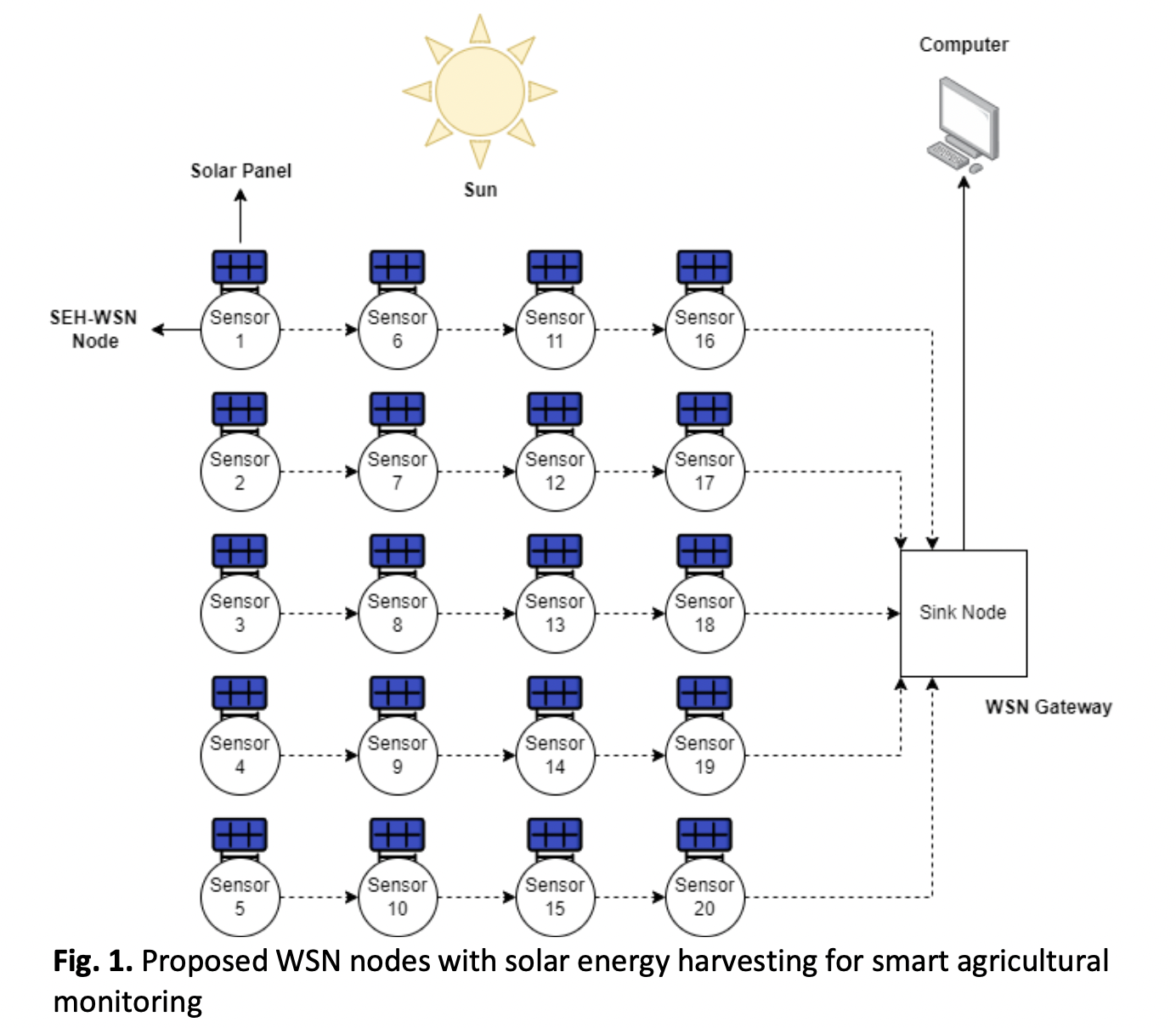Green IoT Based on Tropical Weather: The Impact of Energy Harvesting in Wireless Sensor Network
DOI:
https://doi.org/10.37934/araset.40.1.3544Keywords:
Green IoT, energy harvesting, wireless sensor networkAbstract
Wireless Sensor Networks (WSNs) are a key component of Green IoT, as they play a critical role in many applications. However, a major challenge faced by WSNs is their limited energy capacity, which can impede their effectiveness. To address this issue, energy harvesting techniques are used to harness ambient energy and power the nodes, eliminating the need for frequent battery replacements or recharging. This study proposes a solar energy harvesting technique to prolong the lifespan of each wireless sensor node in a network. The aim of the research is to assess the impact of energy harvesting on wireless sensor networks with a focus on solar ambient light energy, as it is a critical component of achieving a Green Internet of Things (IoT). The study is adapted to the tropical weather of Malaysia and its forecasted conditions. Through the use of NetSim simulations, the energy efficiency and reliability of the network are evaluated using solar energy harvesting. The recharge rate for energy harvesting in a wireless sensor network is calculated to be 2.34W per day using a 55x70mm solar photovoltaic panel based on Malaysia weather forecasts and sun hours. This proposed method is successfully executed using NetSim, which utilizes real device parameters for a WSN in a simulated agriculture environment. The results show an overall improvement of 22.4 percent in performance parameters in all areas, including energy consumption, network layer, routing performance, and IEEE 802.15.4 metrics, representing a significant improvement. With the implementation of solar energy harvesting, traditional energy of WSNs can benefit from developing smart agricultural monitoring systems. This efficient method and calculation for solar energy harvesting can help to sustain the infinite lifetime of WSN by optimizing the operational time to 18% of the duty cycle. Results demonstrate that the proposed method can effectively increase the energy efficiency and reliability of the network, making it a promising solution for WSNs operating in tropical regions. This research contributes to the development of sustainable and energy-efficient WSNs, promoting the Green IoT concept.
Downloads





























